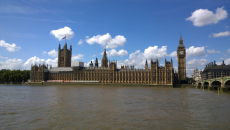
Those who do not hold any of these positions in the government or the opposition in the House of Commons are called “backbenchers”, since in the Commons they traditionally sit behind the front seats in debates. However, they still do a lot of work both in and outside parliament. In their constituencies they hold meetings and surgeries in which their constituents can tell them about their concerns on issues local, national and international – regardless of whether they elected the MP to represent them or not in the last general election. Because they are Members of Parliament, MPs then have the power to pass these concerns on to those who might be able to settle them.
They can write a letter to the relevant minister, notifying them of the problem and asking them what they might be able to do to solve the issue. They could arrange for a private meeting with the minister, so as to properly discuss the matter. Or they could try and get a response from them in the House of Commons itself during departmental questions, in which a Minister of that department has to stand up and answer questions from other MPs regarding the policies and decisions of that department.
MPs can also hold adjournment debates in parliament. Adjournment debates are placed at the end of the day in the House of Commons and give MPs the opportunity to speak on a topic which matters to their own constituents. They also have to deal with hundreds, if not thousands, of emails and letters sent to them by their constituents, other politicians and interest groups which they have to respond to.
Fortunately they can hire assistants both in their constituencies and in parliament to help them with their correspondence and with other matters. These assistants will also help them in keeping up to date with what is happening in their constituency and in parliament.
The House of Commons is, above all, a legislative chamber; a place where the laws which govern the country can be made and unmade. Therefore, perhaps the primary job of an MP is to debate and vote on legislation being passed through parliament.
Ostensibly, they can vote however they wish. However, ministers and shadow ministers in stable governments and oppositions will vote as their party leader does. And backbenchers face pressure too to vote in line with their leader by their party’s whips, which can use various tactics to try and make their MPs vote the right way (more of that later).
Another key duty of MPs, especially those who are from opposition parties, is to hold the government and its various departments to account. Holding the government to account is essential in a functioning democracy and there are many ways an MP can do this.
They can turn up to Prime Minister’s Questions (PMQs), as most do, every Wednesday afternoon and try to get a chance to scrutinise the policies and decisions taken by the PM by asking a challenging question.
They can work on a select committee in parliament, which each examine the labours of a government department (so the Brexit select committee, for example, will scrutinize the actions of the Brexit department).
They can submit early day motions which highlight a particular political issue and get as many MPs as they can to sign it.
Or they can go to departmental questions which I mentioned earlier and work very much like PMQs (only with less jeering).

0 Comment:
Be the first one to comment on this article.